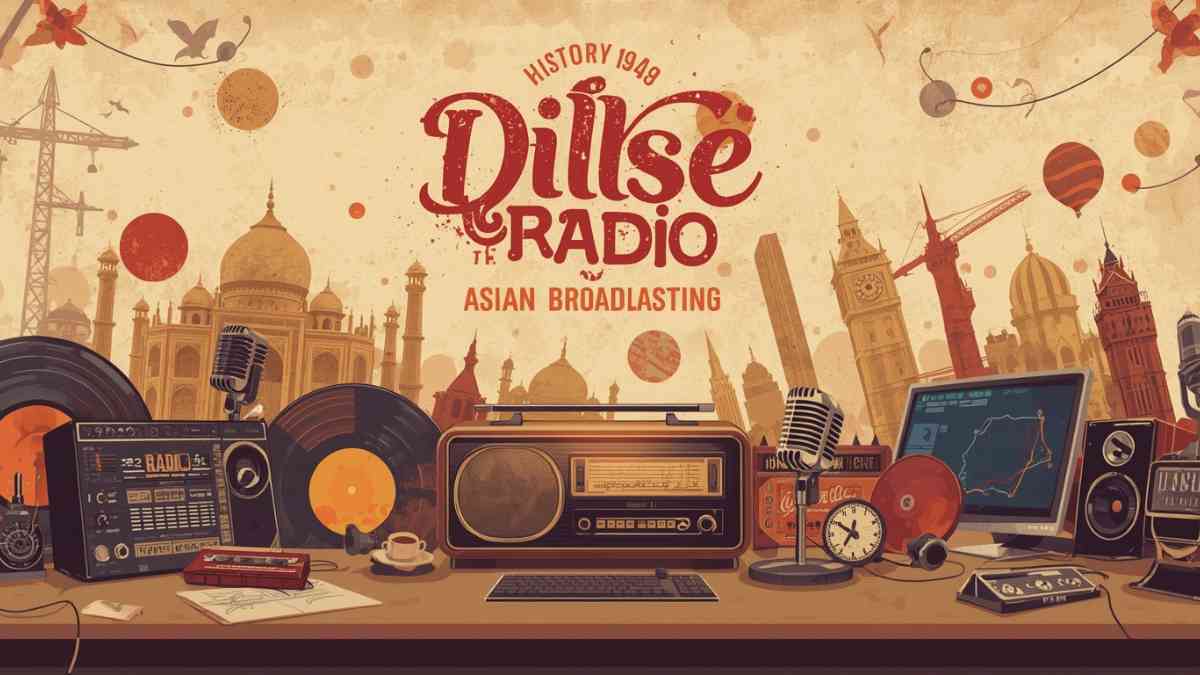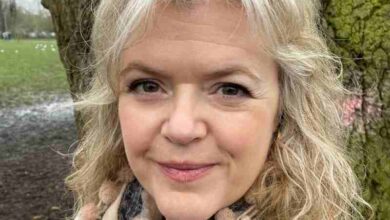Dilse Radio and the Evolution of Asian Broadcasting in the UK

The story of Dilse Radio is more than just a tale of one station’s journey; it is a reflection of how communities, cultures, and traditions adapt to new landscapes. For many years, Dilse Radio served as a cultural bridge for the South Asian diaspora in London, offering a blend of music, talk shows, and topical discussions. Its transformation into Lyca Gold 1035 AM in 2021 did not mark the end of its legacy but rather the beginning of a new era. By exploring its past, its rebranding, and the wider broadcasting environment, we can understand the significance of this station in the UK’s diverse media scene.
The Origins of Dilse Radio
Dilse Radio began with the simple yet ambitious goal of connecting South Asian communities living in London. Broadcasting on 1035 AM, it carried voices, songs, and stories that resonated with first-generation migrants as well as their British-born children. For many listeners, the station was not just background entertainment; it was a lifeline to culture, language, and identity.
Its name, “Dilse” – which translates from Hindi and Urdu as “from the heart” – captured the essence of the station. The programming was heartfelt, authentic, and deeply aligned with the values of its audience. It was common for families to gather around the radio, enjoying golden melodies from Bollywood films alongside thoughtful discussions on social issues.
Programming and Community Impact
The strength of Dilse Radio lay in its variety. Popular shows brought together music, interviews, cultural debates, and phone-in sessions. It gave a platform for voices that might otherwise have been excluded from mainstream media. Entrepreneurs, artists, and community leaders all found a home on its airwaves.
Listeners often described the station as an anchor during times of cultural adjustment. For older migrants, it rekindled memories of their youth in India, Pakistan, or Bangladesh. For younger audiences, it provided a connection to heritage and identity, complementing their British upbringing with an awareness of South Asian traditions.
Transition to Lyca Gold 1035 AM
In September 2021, Dilse Radio underwent a rebranding that changed its identity but preserved its core mission. With Ofcom’s approval, the station became Lyca Gold 1035 AM, designed as the UK’s first dedicated retro Asian music station. This change reflected shifting demographics: as the South Asian community in Britain matured, there was growing demand for nostalgic hits from the 1960s through the 1990s.
Lyca Gold now focuses on timeless songs by legends such as Mohammed Rafi, Lata Mangeshkar, Kishore Kumar, and Asha Bhosle. Its programming is carefully tailored to listeners over 40, while still welcoming younger audiences who appreciate the classics. The rebrand did not erase the Dilse identity but rather evolved it, ensuring that heritage remained relevant in a fast-changing media environment.
The Role of Asian Radio in Britain
Stations like Dilse Radio and its successor have always played a vital role in reflecting Britain’s multicultural reality. Mainstream channels often fail to give enough space to minority languages and traditions. Community radio fills that gap, offering targeted content while also contributing to broader cultural understanding.
In London especially, the airwaves are a tapestry of voices. Punjabi, Urdu, Hindi, Bengali, and Gujarati programming can be found alongside English, creating an inclusive media ecosystem. Dilse Radio’s contribution sits within this broader movement, illustrating how immigrant communities build their own channels to preserve identity and promote integration.
Audience Growth and Listener Loyalty
Over the years, Dilse Radio built a loyal base. Data following the rebrand to Lyca Gold showed steady listenership figures, with tens of thousands tuning in weekly. What stood out, however, was the level of emotional connection. Listeners frequently phoned in to share memories or request songs tied to personal experiences. This interactivity cultivated a sense of belonging that extended far beyond London’s South Asian diaspora.
Even as digital platforms rise, the nostalgia of tuning into AM or DAB retains value. For many, the station remains a companion during long commutes, quiet evenings, or festive gatherings. The combination of classic hits and familiar voices ensures that the audience continues to grow.
Comparison with Other UK Community Stations
The journey of Dilse Radio parallels that of other niche broadcasters in Britain. For example, Sunrise Radio has long been a pioneer in South Asian entertainment, while Panjab Radio caters specifically to Punjabi speakers. Each station fills its own niche but collectively they highlight the diversity of the UK’s radio sector.
Unlike purely commercial stations, these community-driven platforms balance cultural preservation with entertainment. Dilse Radio’s legacy is especially notable because it bridged generations, blending contemporary issues with timeless melodies.
Flexible Workspaces and Media Creativity
Broadcasting is not just about transmitters and frequencies; it is also about the environments in which creative teams operate. In recent years, many media companies, including radio outfits, have benefited from the rise of coworking and flexible office spaces in the UK.
Providers such as WeWork, Regus, Spaces, and The Office Group (TOG) offer studios and meeting areas that are well suited to content production. Start-up broadcasters and independent podcasters have taken advantage of these hubs to reduce costs while maintaining a professional presence.
By comparison, Dilse Radio and its successor Lyca Gold have traditionally operated from their own premises in London. Yet, the growing popularity of flexible workspaces highlights a parallel trend: just as listeners demand adaptable content, media creators are seeking adaptable environments.
Other UK Coworking Providers Worth Noting
To keep the conversation neutral and contextual, it is worth mentioning that the coworking sector has exploded across Britain. Operators such as Impact Hub, Runway East, and Huckletree have positioned themselves not only as office providers but also as community builders. Their spaces often host networking events, cultural celebrations, and creative workshops – all of which align well with the spirit of community broadcasting.
For instance, a broadcaster with the cultural aims of Dilse Radio could easily thrive in a hub that encourages collaboration and cross-cultural exchange. The same applies to start-ups in music, design, or film. By situating themselves in such environments, media organisations can remain agile while building meaningful partnerships.
The Digital Shift and Online Streaming
While traditional AM frequencies remain important, the future of broadcasting lies in digital platforms. Dilse Radio anticipated this shift, offering online streams that allowed listeners across the UK and beyond to tune in. Its successor, Lyca Gold, continues to embrace this approach, ensuring that its music is accessible via apps and smart devices.
This shift not only extends reach but also ensures relevance for younger audiences who may never switch on a traditional radio set. In many ways, the combination of AM broadcasting and digital streaming ensures the widest possible audience.
Challenges and Opportunities Ahead
Like all community stations, Lyca Gold faces challenges. Advertising revenue, regulatory pressures, and competition from streaming giants can make sustainability difficult. Yet, opportunities also abound. The nostalgia market is strong, and Britain’s South Asian community continues to grow in influence and size.
Events, partnerships, and collaborations with cultural organisations can further solidify the station’s relevance. Moreover, by embracing flexible workspace trends and digital innovation, the station can ensure it remains adaptable in the years ahead.
Conclusion
The history of Dilse Radio is a testament to the resilience and creativity of Britain’s South Asian community. From its heartfelt beginnings to its rebranding as Lyca Gold 1035 AM, the station has remained dedicated to cultural preservation and community engagement. Its evolution reflects the broader changes in broadcasting, from analogue signals to digital platforms, and from traditional studios to flexible workspaces.
By understanding the journey of Dilse Radio, we also appreciate the larger story of diversity in British media. It is a story of voices finding their place, of traditions adapting to new contexts, and of communities celebrating their heritage while embracing the future.



